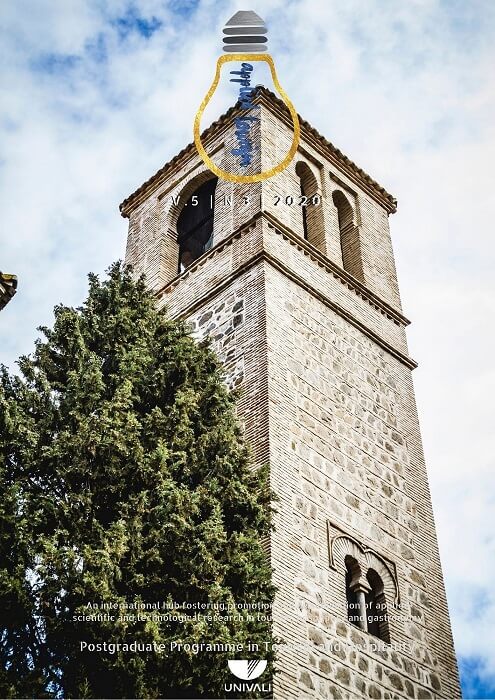The complexity of the term sexual tourism: approach to the project to prevent sexual exploitation of children and adolescents
DOI:
https://doi.org/10.14210/at.v5n3.p20-25Keywords:
Tourism, Sexual Exploitation, Public PolicyAbstract
In large part, attempts to understand tourism produce inadequate typologies that, in the desire to operationalize the phenomenon, hinder the clarity of the concept and encourage the ill-use of tourist destinations. It is in this way, in the context of globalization that sexual exploitation by tourism arises, associated with the exploitation of under ages in situations of social vulnerability, configure a complex approach to the term sexual tourism. In that framework, this article was elaborated with the objective to analyze the theoretical discussion of the term sexual tourism portrayed in the training courses for multipliers of the Project for the Prevention of the Sexual Exploitation of Children and Adolescents in Tourism of the Ministry of Tourism, in partnership with the Center of Excellence in Tourism of the University of Brasília in the light of the complexity of tourism through the participating subjects - the multipliers. The study adopted the research action and the dialectic method to investigate the level of understanding of the acquired knowledge from these trained actors in the different Brazilian regions, after the institutional training received in the years 2016 to 2017, with the perspective of pointing out possible ways to approach new content that allows the rereading of what may be sex tourism, fundamental to the most responsible practices of tourism professionals.
References
BARRETO, M. (2000). Turismo e legado cultural: as possibilidades do planejamento. São Paulo: Papirus.
BRANDÃO, C. R. (1997). Thinking about practice. São Paulo: Edições Loyola.
DEMO, P. (2000). Methodology of scientific knowledge. São Paulo: Atlas.
GASTAL, S.; MOESCH, M. M. (2007). Tourism, public policies and citizenship. São Paulo: ALEPH.
GOODWIN, H. (2005). Responsible tourism and the market. Occasional Paper, no. 4. November, ICTR.
GOODWIN, H. (2009). Ten years of responsible Tourism: an assementin. FONT, X.; GOODWIN, H. (Orgs.) Progress in responsible tourism. v.2, Oxford.
KRIPPENDORF, J. (1989). Sociology of tourism for a new understanding of leisure and travel. Rio de Janeiro: Editora Civilização S.A.
LEAL, M. L. P. (2001). Research on trafficking in women, children and adolescents for the purpose of commercial sexual exploitation in Brazil. Brasília: CECRIA.
MAFFESOLI, M. (2001). On nomadism: postmodern wanderings. Rio de Janeiro: Record.
MINISTRY OF TOURISM (2009). Strategic proposal for the 2014 World Cup tourism organization in Brazil. Brasília.
MOESCH, M. M. (2002). The production of tourist knowledge. São Paulo: Contexto.
MORAES, M. C. (2000). The Emerging Educational Paradigm. São Paulo: Papirus.
OLIVEIRA, A. P. (2000). Tourism and development: planning and organization. (3nd ed.). São Paulo: Atlas.
ROSENO, R. (2006). Brief reflections on the relationship between tourism, childhood and youth in Brazil. Social tourism: dialogues of tourism: a journey of inclusion. Rio de Janeiro: Ministry of Tourism/Brazilian Institute of Municipal Administration.
Downloads
Published
Issue
Section
License
In this term of responsibility I (we) certify the participation in the drafting of the attached article, thereby making public my (our) responsibility for its content. I (we) declare not omitting any connections or financing agreements between I (we) and entities and / or institutions that may have an interest in the publication of this article. I (we) certify that the article is original and that the work, in whole or in part, or any other work with content substantially similar to my (our) authorship, in any other format (printed or electronic), was not sent to another journal and will not be sent while is being considered by the Applied Tourism. In this consent form, the authors give permission to the journal, in the case of approval by the Editorial Board, for the publication of the attached article in hard copy and/or electronic form, in a regular edition of the journal.










